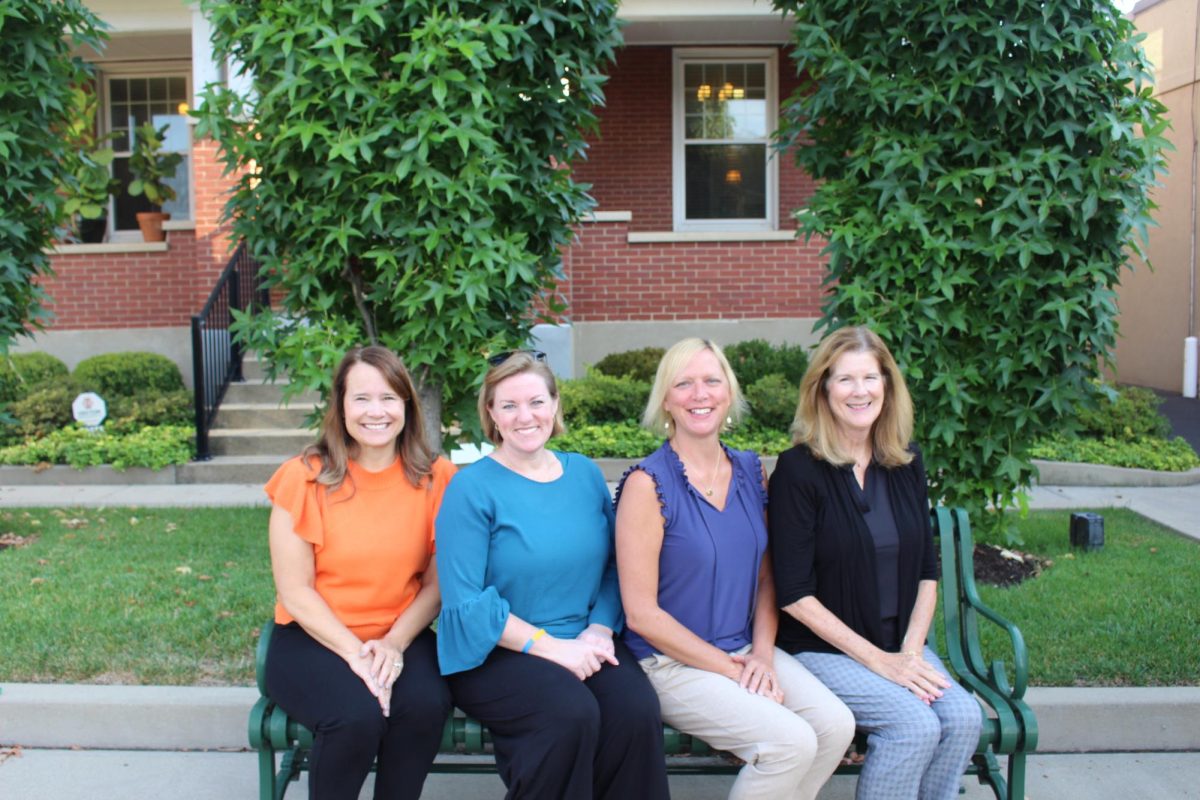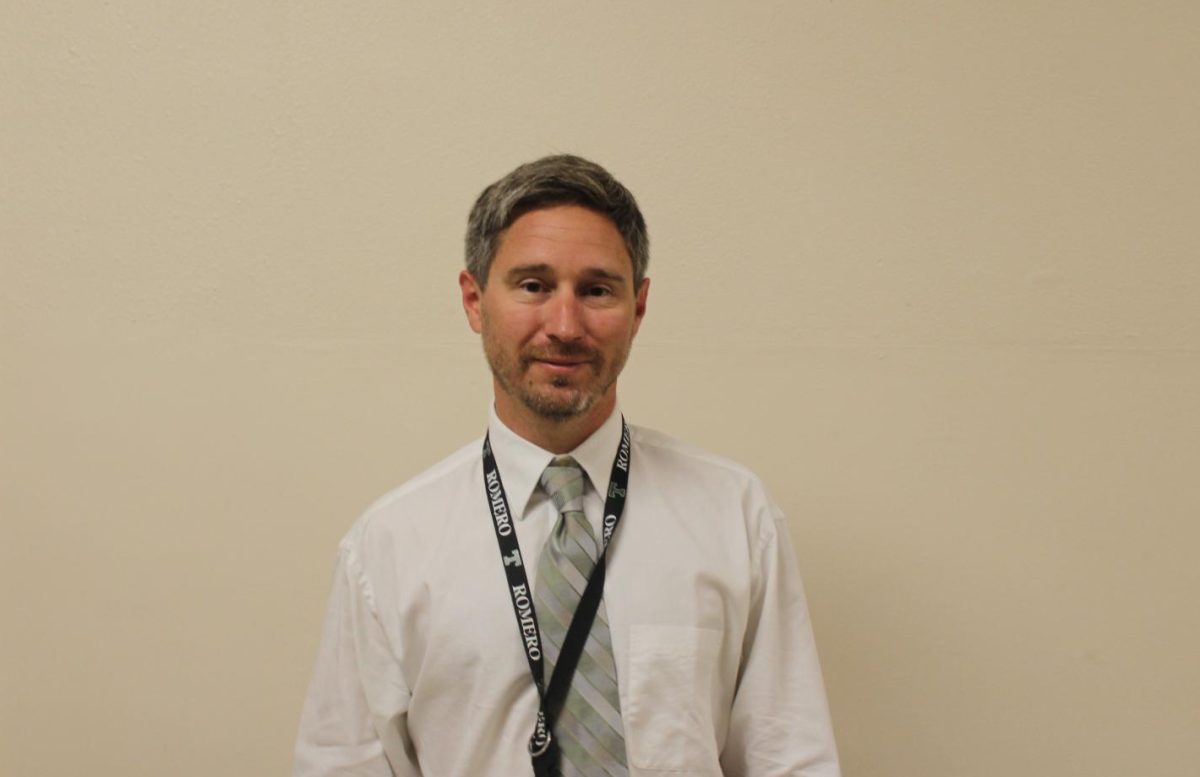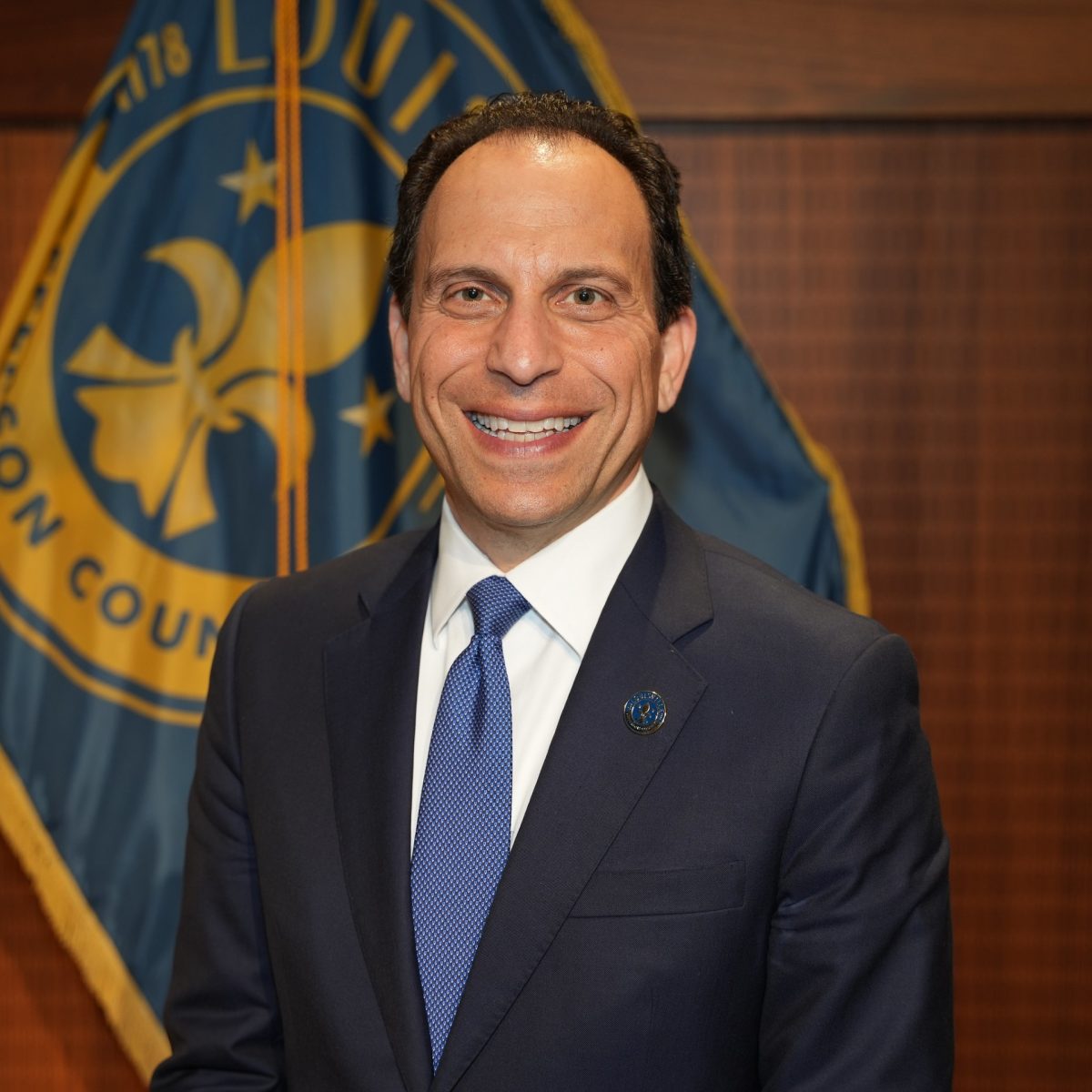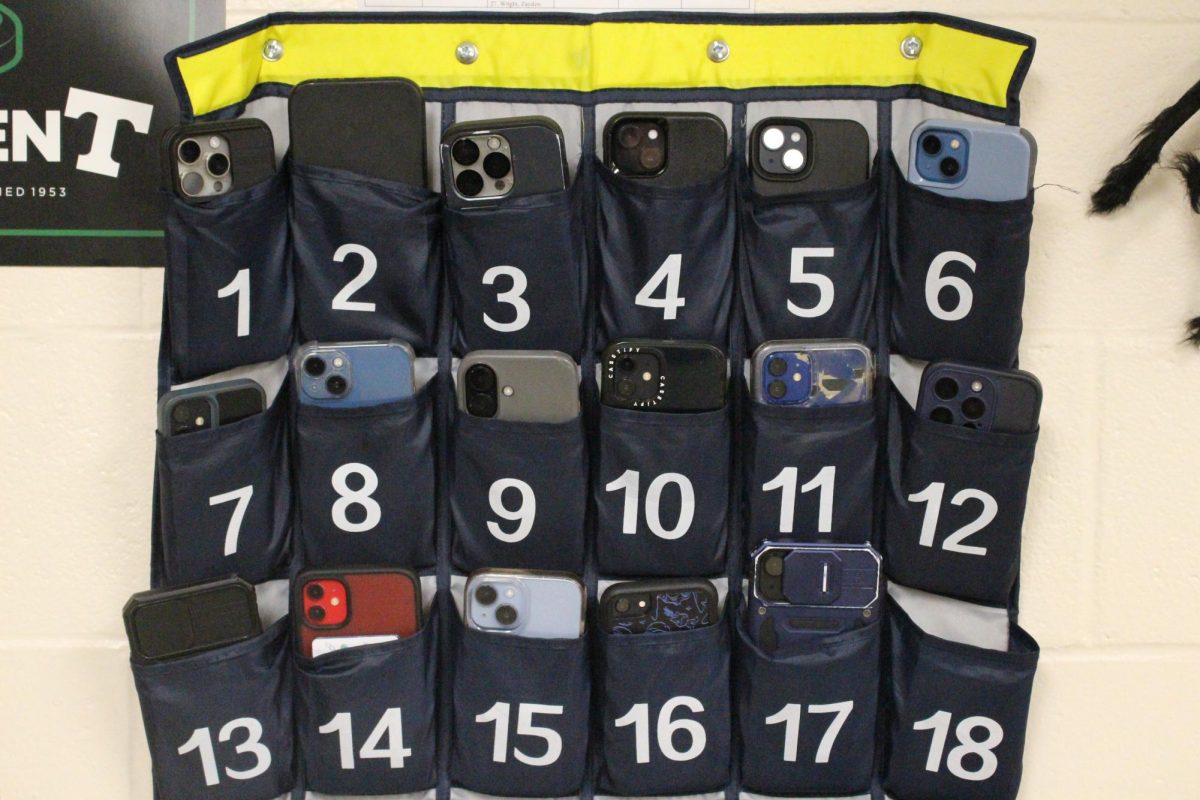Trinity is a college preparatory high school, requiring completion of a certain number of courses in a variety of subject areas, designed to prepare students for the classes they will have in college. But that’s not all Trinity does to prepare its students for college.
Before attending any college, you have to apply and be admitted. Mrs. Sharon Bohannon and Mr. Jeremy Jackson, Trinity’s college counselors, guide seniors through the college application process. They help students pick colleges and complete the application process.
“I meet with seniors to help them decide what schools are a good fit for them,” Bohannon said. “After that I show them what they need to do to apply to those colleges — and how they can apply for scholarships.”
Senior Patrick Muller is interested in eventually going to medical school. He said, “I’ve applied to U of L, Bellarmine, Ohio State, and York (in Toronto, Canada), and I’ve been accepted to U of L and Bellarmine. I picked Bellarmine because it’s pretty close, and it has a big acceptance to med school. I picked U of L because I could also use it to get to med school.”

A college gets sent a student’s class schedule, grades and a list of extracurricular activities, but that usually doesn’t tell the whole story. Many colleges will ask ask for a personal essay as well as letters of recommendation from a counselor or a teacher.
Dr. Aaron Striegel, the Advanced Program counselor and teacher of issues in drug and alcohol education classes at Trinity, is a popular choice for letters of recommendation. He said, “Either they know me personally as a counselor, or they’ve had me in class and respect me — or they heard that I write great letters — but I prefer guys from the first two areas. I ask every student to give me a resume that includes their activities, awards, interests, etc., so that I can make the recommendation specific to that student. Each student is different and we want to show that.”
Members of the Junior Class may be just thinking about college, but this year’s seniors should be well into the application process. Most are done looking at colleges, and are finishing up their applications to all of the colleges that they want to apply to.
“The next step is to choose where you want to go,” Bohannon said. “It’s a good idea for you to know where you want to go by January so that you can apply for housing.”
Applying to live on campus can be competitive in some cases. For instance, the University of Louisville has a small number of “suite” dorms that can be applied for beginning January 8. Advisers at U of L recommend submitting housing applications at midnight on that date. Applying for a typical dorm at U of L is not as competitive.
Juniors might think it’s best to wait until they’re seniors to worry about applying to colleges; however, Bohannon recommends at least starting the process as a junior.
“When you come in as a senior, you should have already taken the ACT and looked at a few colleges,” she said. “You can’t apply to schools without knowing which ones you might want to go to, or without having an ACT score to send them. It helps to at least start doing that as a junior.”
There is one thing that all Trinity students can do to prepare for applying to colleges, according to Striegel: “Get involved. Join a club and show some leadership skills. Show them you’re more than just a score and a ranking. Prove that you can work hard, and you will be accepted.”
Senior Geordie Ayers agrees with the need to impress colleges with involvement in activities, along with good course choices. He said, “(Colleges look for) a diversity of activities, how diverse your (course) schedule is, and what you’re really interested in.”
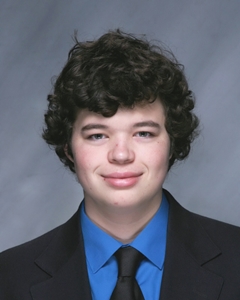
Ayers also pointed out something that can be demonstrated in a strong personal essay. He said, “They look for academic achievement and strength of schedule — but also something that shows you are unique.”


